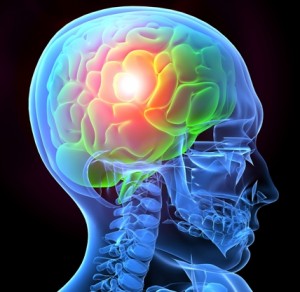 A concussion is a type of brain injury, also known as a mild traumatic brain injury, which is often described as a blow or jolt to the head that disrupts the function of the brain. Concussions are often the result of car accidents, collisions in sports such as football or soccer, being hit in the head by an object, or falling and hitting one’s head. Concussions can also result from the head and body being violently shaken, especially in babies and younger children.
A concussion is a type of brain injury, also known as a mild traumatic brain injury, which is often described as a blow or jolt to the head that disrupts the function of the brain. Concussions are often the result of car accidents, collisions in sports such as football or soccer, being hit in the head by an object, or falling and hitting one’s head. Concussions can also result from the head and body being violently shaken, especially in babies and younger children.
How do you know if you or a loved one has suffered from a concussion?
Absent medical treatment, there is no way of knowing for certain whether someone has sustained a concussion. However, there are several signs and symptoms you should be aware of, that may indicate a person has suffered from a concussion. The first indicator is if they have been in a car accident, sports collision, fallen and hit their head, etc., particularly if there is a temporary loss of consciousness.
Other signs of a concussion include:
- A headache or feeling of pressure in the head;
- Confusion, or feeling like you are in a fog;
- Dizziness or “seeing stars”;
- Amnesia surrounding the traumatic event, i.e. the sports collision;
- Delayed reactions or responses to questions;
- Ringing in the ears;
- Nausea;
- Vomiting;
- Slurred speech; and
It is important to note that while some symptoms may be immediate, others may have a delayed onset of hours or even days after the injury. These symptoms usually include concentration and memory complaints; irritability and other personality changes; sensitivity to light and noise; trouble falling or staying asleep; psychological issues including depression; and disorders of taste and smell.
What should you do if you or a loved one has sustained a concussion?
Even if the symptoms are not severe, you or your loved one should see a doctor within 1 to 2 days of a head injury, especially if the injured party is a child. Doctor’s can do IMPACT testing to assess if a concussion is present. As soon as the injury occurs, call the doctor to inform them, and follow his or her instructions on seeking treatment.
Call 911 for anyone who experiences a head injury followed by any of these symptoms:
- Repeated vomiting
- Seizures
- A loss of consciousness that lasts longer than 30 seconds
- A headache that has worsened over time
- Changes in physical coordination, i.e. inability to walk straight or maintain their balance
- Confusion or disorientation, i.e. difficulty recognizing people or places
- Slurred speech or inability to communicate effectively
- Continuing dizziness
- Symptoms that worsen over time
- Large bumps or bruises on areas of the head other than the forehead on children, especially infants.
Although there are several different tests physicians can run to determine whether there has been a concussion and if there is any residual brain swelling or bleeding, the best and most important treatment is rest. Immediately following the head injury, the injured person should rest his or her brain. This means physical and cognitive rest; meaning no reading, watching TV, texting or emailing on a cell phone, or listening to music.
Remember, because a concussion affects the brain, the injured person may not be able to make an informed decision about whether or not to seek medical treatment or get the appropriate rest. It is important that family, friends, teachers and coaches know the signs and symptoms and help ensure the injured person gets the medical attention they need. The sooner someone is diagnosed with a concussion, the better their chances of recovery are.
When to contact Pope McGlamry about a concussion injury?
You should seek legal counsel if you or a loved one sustained a serious head injury or concussion and are experiencing serious and/or long-term side effects from the injury. Long term effects can result from very serious head injuries, as are often received in car accidents, or from repeated head trauma, as can be the case for athletes.
For a free case evaluation, call Pope McGlamry at (877) 285-7656 or contact us to schedule a case review with our expert legal team.




